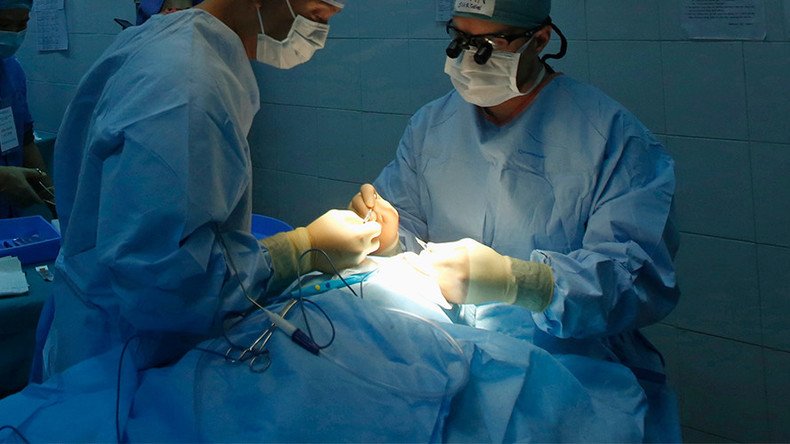‘Useless’ appendix may play key role in immune system, say researchers

Scientists in the US have moved closer to solving the mystery of the human appendix and answering the question of why the gut organ exists.
A team of researchers from the Midwestern University Arizona College have published a study claiming the tiny intestinal organ may work as a secondary immune organ, providing a “safe house” for helpful gut bacteria.
Ancient clay used by aboriginal Canadians could fight antibiotic-resistant bacteria – study https://t.co/QETiPtnZSspic.twitter.com/NbIELu96pj
— RT (@RT_com) January 28, 2016
The appendix was previously believed to exist as a forgotten organ with no obvious function, similar to wisdom teeth and the tailbone, leftover from the process of evolution millions of years ago.
This latest study, however, has rebuffed the concept of the “useless appendix.”
READ MORE: Drug-resistant bacteria brewing to become a ‘superbug’ for children
Mapped data on the appendix from 533 species of mammals, found that those with an appendix possessed “higher average concentrations of lymphoid (immune) tissue in the cecum.” This led the team to believe that the appendix played a key role in the immune system, assisting the growth of beneficial gut bacteria.
The findings support the findings of a 2012 study by researchers at Winthrop University-Hospital which found that patients with Clostridium difficile colitis, a bacterial infection of the intestine and colon, were more likely to have their condition recur if their appendix had been removed.
Only 11 percent of patients studied with an appendix saw a recurrence, compared to 48 percent without the tiny gut organ.
The latest study also found that the appendix has evolved at least 29 times in the evolution of mammals studied, compared to only being lost up to 12 times, with the researchers claiming the organ had a “selective value for this structure.”
"Thus, we can confidently reject the hypothesis that the appendix is a vestigial structure with little adaptive value or function among mammals." they said.
‘Unique breathprint’: Scientists develop device able to ‘sniff out’ 17 deadly diseases https://t.co/G4ofyKWHVvpic.twitter.com/2osWEMJQuq
— RT (@RT_com) December 25, 2016
Despite allegedly not having a use, it was thought to have remained in humans as its removal would have been too much effort for evolution.
In modern-day humans, the organ is sometimes accused of doing more harm than good as it often has to be removed due to appendicitis, a painful inflammation of the organ caused by calcified feces creating a blockage.
In 2010, appendicitis was responsible for nearly 293,000 hospital admissions in the US, according to a report by the Healthcare Cost and Utilization Project.












